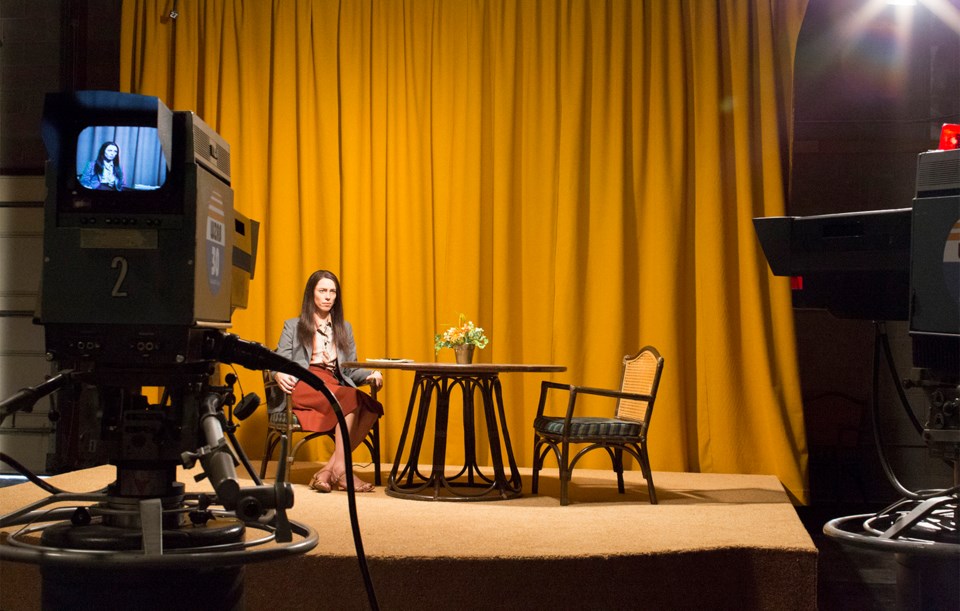While Antonio Campos’ Christine offers a throwback look at broadcast journalism in the 1970s — tape is hurriedly spliced to make it onto the air, the switch to video is imminent — the issues of sensationalizing the news to assuage sagging viewership couldn’t be more current.
And at the nexus of this philosophical divide between content versus ratings is the true and tragic figure Christine Chubbuck, who at age 29 shot herself during a live news broadcast in 1974.
Rebecca Hall, in a career-defining performance, plays Christine. When we first meet her, she is taping a mock interview for analysis later where she’ll criticize every body movement, every inflection.
Relegated to “puff pieces” about fender-benders and the Sarasota strawberry festival, Christine lobbies for more serious material and proves to be a thorn in the side of her boss, Mike (Tracy Letts), who increasingly pressures his staff to hunt down juicier stories.
“We’re supposed to know better than them,” Christine says of her responsibility to her audience. Mike counters with “We’ve got to liven things up around here — the ratings are in the… toilet.”
“You know what your problem is? You’re a feminist,” Mike adds. Sexism in the industry didn’t further her quest for serious fare, but in truth, the film suggests, Christine had a capable but charmless on-camera presence. That inability to connect with her audience spilled into her personal life, where at 29 Christine had only been out on two dates and was still a virgin. She has terrible gynecological pain but is too afraid to see the doctor, dismissing it as the stress of her job and impending staff changes at the station.
While the very serious story of Watergate plays on television sets in the background, Christine navigates career and personal disappointments: she harbours a serious crush on news anchor George (Michael C. Hall) but doesn’t have the wherewithal to drop the school marm demeanor and flirt or endear herself to any of her colleagues. “You’re not exactly the most approachable person,” George observes.
She lives with her mother Peg (an excellent J. Smith-Cameron) in a powder-pink bedroom designed for a teenager, though Christine’s 30s are around the corner. Peg is her only friend, and worries about Christine’s deteriorating mood, alluding to an “incident” in Boston a few years before.
In her spare time, Christine puts on puppet shows at a hospital for sick children. Cleverly, writer Craig Shilowich and director Campos use the content of these performances to show the decline of Christine’s emotional well-being.
And so, should you even watch Christine? A film about how journalistic integrity is eclipsed by the “if it bleeds, it leads” rush-to-publish/air is couched in a story where we wait excitedly for the moment that a young woman shoots herself on live TV. Luckily, Hall’s seamless performance creates a totally immersive (and infinitely sad) experience while Campos, anticipating our uneasiness, raises the question and leaves the viewers to decide for themselves.
Christine opens Friday at Vancity Theatre.



